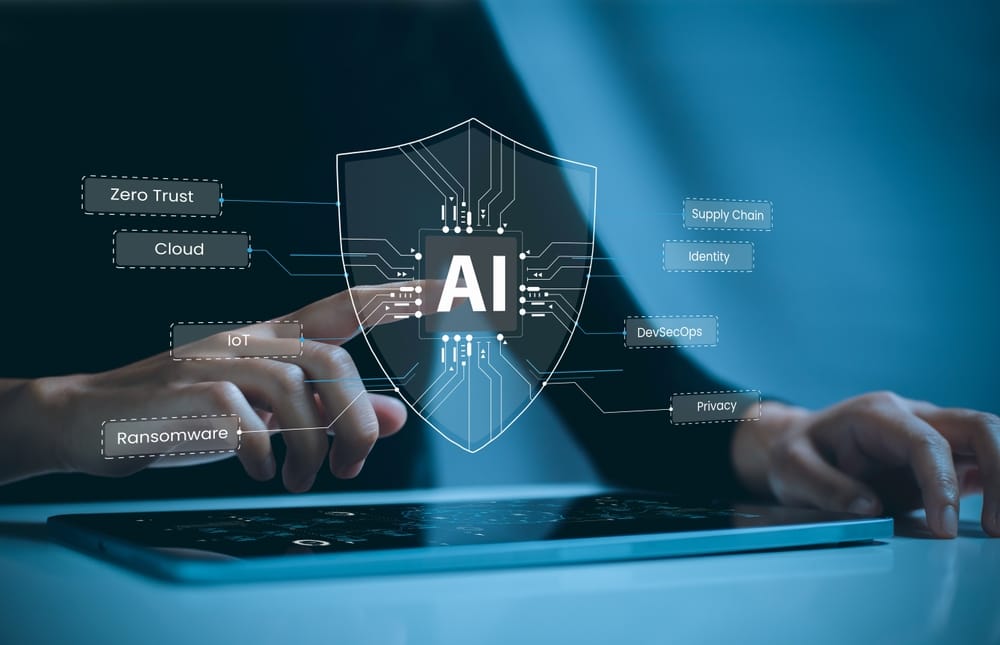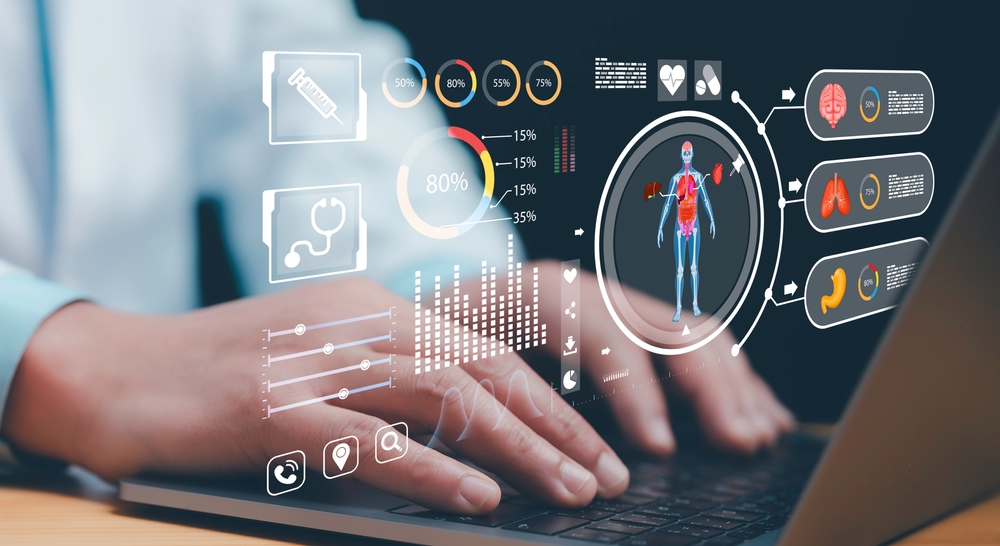The Rise of AI in Life Sciences: Potential and Real Risks
Artificial intelligence (AI) is a hot topic. Every article, news bulletin, and podcast seems to mention it. Looking back at the last ten years, machine learning algorithms have grown fast.
Intelligent AI systems surged with ChatGPT’s rise in January 2023. Many see this as the start of a new tech boom, a trend still strong as investors pour millions into generative AI.
The AI in the life sciences market has been more careful, but it hasn’t fallen behind. Grand View Research reported the global AI in life sciences market at $1.3 billion in 2020. This technology will grow 11.1% each year from 2023 to 2030, highlighting its expanding role within the sector.
Advanced computing aids drug development in saving lives, yet AI’s risks in life sciences are real.
Smart Systems Transform Drug Discovery & Personalized Medicine
The future involves these advanced AI systems; there’s no doubt about that. They are already changing the medicine industry in many ways. Drug discovery with AI, known for being costly, long, and uncertain, is leading the way. The impact of AI in life sciences is truly changing here.
Today, drug-making companies use intelligent tools and platforms. These help them find and map disease pathways and look into complex protein interactions. This approach creates new, effective drugs and treatments with a wide range of uses, boosting smart tools in medicine.
Life-changing Drug Discovery: Insilico Medicine’s Example
Chemistry42, a special platform by Insilico Medicine, shows what this technology can do for medical innovation. Running on 42 generative AI algorithms, Insilico used this tool at every step of drug discovery. It helped them find small molecules that a drug candidate could target. This demonstrates a practical application of AI in life sciences.
These drug discovery processes traditionally cost over $400 million and take up to six years. However, Insilico achieved this drug-related feat for $40 million in two years using Chemistry42. This is a remarkable achievement, showing the power of these AI systems in healthcare. The success rates of such AI-driven approaches offer a promising long-term outlook for this field.
This is just one great example of the changing power of these smart AI systems. In areas like personalized medicine, AI is becoming central, helping doctors create more specific treatment plans and accurate diagnoses. This clearly shows the burgeoning role of intelligent solutions in healthcare.
Addressing Key Challenges & Risks for AI in Life Sciences
Even with all this, the healthcare market has generally been cautious about integrating these tools. Most achievements aided by these AI systems in this area are still new, and for good reason. Here are the biggest risks of artificial intelligence for the medical market. Addressing these challenges is crucial for the safe development of advanced computing in healthcare.
Data Quality & Bias: A Critical Challenge for AI
An intelligent model is only as good as the data it learns from. Data fuels these AI systems; without large amounts of data, machine learning algorithms can’t make accurate guesses. This is a critical factor for successful AI in life sciences.
That said, AI algorithms trained on incomplete datasets or with biased data collected can make biased decisions. Likewise, those trained on wrong information can make equally incorrect conclusions, a risk that has led to real-world failures. This highlights the critical role of data science in preparing and validating datasets for these sophisticated applications. Researchers and developers constantly work to mitigate these issues.
Program Bias: Impact on Patient Care from AI Systems
A clear example is Apple’s Credit AI algorithm. This issue came up after popular software developer David Heinemeier Hansson complained on Twitter. His Apple card’s credit limit was 20 times his wife’s, despite joint tax returns and his worse credit score. This serves as a cautionary tale for implementing such AI systems in the healthcare sector.
After his tweet went viral, more Apple customers shared similar complaints. They accused the Apple Credit program of gender bias. This prompted the New York Department of Financial Services to investigate Goldman Sachs, the company running Apple Card. Researchers and developers must precisely avoid such biases when deploying intelligent AI systems in the health domain.
Patient Safety: Mitigating Biased Medical Data Risks in AI
This is a risk the healthcare industry should take very seriously. Deep learning models and AI algorithms for clinical trials and drug discovery heavily use medical data (health records). Suppose researchers train such AI systems on biased and incomplete data collected.
The effects could be dangerous, potentially compromising patient safety through unforeseen side effects. Ensuring patient safety is paramount for any AI application in the medical field, a key focus for AI researchers.
Internet Safety & AI: Addressing Threats in Life Sciences

This AI technology is a double-edged sword, and this is clear from how hackers use it. As these AI systems improve, it becomes easier for criminals to use advanced cyber-attack techniques. AI developers build defenses, but challenges persist for AI in life sciences adoption.
The Rise of Advanced Cyber Attacks & Deepfakes in Healthcare
Deepfakes are a prime example of how this technology is changing cybercrime. Recently, tricksters persuaded a finance worker at a global firm in Hong Kong to send $25 million. This happened after a video call with people they thought were colleagues, only to find out they were deepfake creations. This highlights the cyber risks associated with artificial intelligence in the healthcare industry.
The risk of a data breach or social engineering scam like this is very real for healthcare companies. In 2021 alone, hackers stole over 40 million patient records in the United States data breaches. This impacts supply chains and data security across the United States. The sheer volume of big data involved makes these breaches particularly concerning for advanced computing within healthcare.
Technology as a Data Defense Mechanism for AI Systems
However, this technology, being a two-sided coin, also offers an advantage. A World Economic Forum report states that these AI systems can defend against and prevent these attacks. This offers a silver lining for healthcare.
For example, intelligent AI systems are very accurate at finding malware. Researchers and developers can design AI algorithms to check systems for suspicious activity, signaling a possible data breach. This application of computer science is crucial for security within healthcare deployments. The growing trend of open-source security tools also aids this defense.
Performance Failures: Ensuring AI Model Validity in Life Sciences

As life science companies use these applications more, performance failures remain a risk. AI models fail when researchers overstate their abilities or produce incorrect outputs. This is a significant concern for AI in life sciences.
Take the case of Watson for Oncology, an IBM-powered tool. Developers designed it to help doctors advise cancer patients using information from past cancer cases.
Internal IBM documents showed that the tool advised unsafe and incorrect treatments to doctors. This became a performance failure with complex causes, directly impacting the trust in AI in life sciences.
Because of this, life sciences companies in the medical sector need to take the risks of artificial intelligence seriously. Confirm data validity from clinical trials; deep learning models using data collected can make mistakes. This validation is key for AI in life sciences.
Legal and Ethical Frameworks for AI in Healthcare
As AI systems become more embedded in the medical sector, the legal and ethical landscape grows increasingly complex. AI innovation outpaces regulatory frameworks, challenging medical companies, lawmakers, and researchers. Addressing these critical areas is fundamental to ensuring responsible and trustworthy AI adoption in healthcare.
Accountability and Liability for AI System Errors
A central legal challenge revolves around accountability. When an AI system makes a mistake that leads to patient harm or incorrect drug development outcomes, who is liable? Assigning liability for AI errors is challenging. Existing legal frameworks struggle with AI.
Developers built them for human error or traditional software. Assigning AI responsibility is tough. It’s unclear if the AI developer, provider, or company is liable, especially with opaque “black box” AI algorithms.
The intricate nature of deep learning models, which evolve and learn from large amounts of data, further complicates liability. Establishing clear accountability for AI systems is vital.
This ensures patient protection and fosters public trust in this critical domain. Without clear lines of responsibility, medical firms may face significant legal risks of artificial intelligence, deterring innovation.
Regulatory Landscape for AI in Healthcare
AI medical regulation is emerging globally. It’s a patchwork of guidelines, not comprehensive laws. The FDA guides AI in medical devices, focusing on review and surveillance. Europe’s AI Act proposes a risk-based approach, with stricter rules for high-risk AI systems in healthcare.
For medical companies, navigating these evolving regulations requires significant expertise and proactive engagement. Compliance will demand rigorous testing, transparent documentation of AI algorithm design and data sources, and continuous monitoring of AI system performance. The goal is to foster AI innovation while mitigating its risks to patient safety and data privacy. Researchers and developers play a key role in developing transparent and explainable AI systems to meet these requirements.
Ethical Considerations and Patient Trust in AI
Beyond legal compliance, a wide range of ethical considerations is paramount for AI in healthcare. Algorithmic bias is a top concern: AI systems amplify existing data biases, leading to unequal healthcare outcomes. Ensuring fairness and equity in AI design is an ethical imperative for AI researchers and medical companies.
Another crucial aspect is informed consent. Gaining meaningful patient consent for AI algorithms using sensitive medical data poses a significant challenge. Transparency about how AI systems use and interpret data is essential for maintaining patient trust. The “human-in-the-loop” principle ensures AI augments, not replaces, human judgment in healthcare.
International Cooperation for Global AI Standards
Global drug development, healthcare, and AI research demand international cooperation for consistent medical AI standards. Diverse regulatory approaches across different countries can create barriers for medical companies operating globally and could hinder the rapid adoption of beneficial AI innovations. Harmonizing standards, sharing best practices, and fostering open-source collaborations accelerate responsible AI system deployment worldwide.
Balancing AI’s immense potential with strong legal frameworks and ethical commitment is an ongoing journey in medicine. Proactive challenge-solving enables healthcare to harness AI’s power to improve lives while upholding safety, fairness, and accountability.
Reducing Risks: Path to Responsible AI Innovation
We’ve reached the end of our talk about the dangers of smart AI systems in the healthcare market. Adding this promising technology needs caution from everyone involved. Since this is a highly regulated industry, we expect to see policy changes soon regarding AI in life sciences.
This technology is a game-changer, but its full potential remains untapped due to early use. Insilico Medicine, creating a drug-like molecule faster, highlights the future of intelligent AI in life sciences solutions.
However, healthcare companies cannot ignore AI risks when using this technology in drug discovery, clinical trials, and personalized medicine. AI algorithms and machine learning models depend on data quality for AI in life sciences success.
Data Transparency & Unbiased AI Systems for Life Sciences
Data bias creates risks for artificial intelligence, leading to wrong conclusions and endangering patient lives. With examples like Oncology by Watson to learn from, governments, private companies, and healthcare groups must work together. They need to make sure medical data systems are clear and fair. This requires robust data science practices for AI in life sciences, supported by AI researchers and open source initiatives.
Improving Online Safety & Digital Knowledge in the AI Era
Additionally, healthcare companies must update their digital security measures. They also need to keep workers informed about current trends. As these AI systems advance, distinguishing between content made by natural language processing technology and by humans is crucial. Proactive security protects supply chains, data in the United States, vital for AI in life sciences.
